NEWS
Dalai Lama Joins Russian and Buddhist Scholars for Historic Dialogue in New Delhi
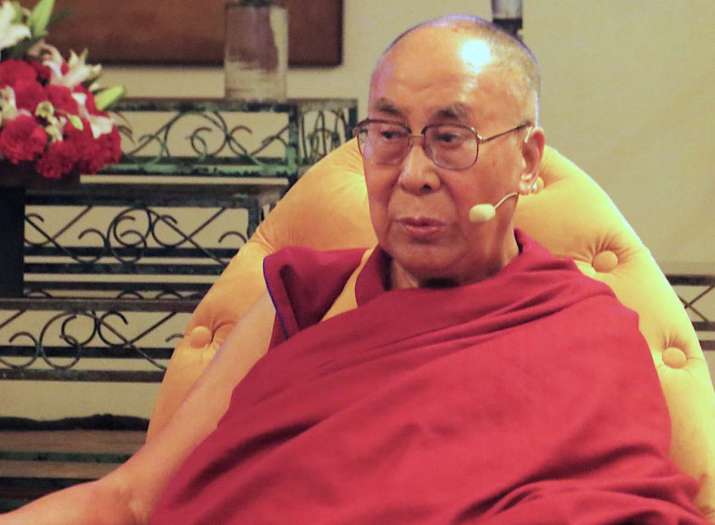 His Holiness the Dalai Lama listens to presentations at the dialogue. Image courtesy of the author
His Holiness the Dalai Lama listens to presentations at the dialogue. Image courtesy of the authorNEW DELHI—A historic meeting between Russian and Buddhist scholars was held in New Delhi from 5–8 August in the presence of His Holiness the Dalai Lama. It was the first of a landmark series of meetings under the theme “Fundamental Knowledge” that are aimed at exploring important issues for the contemporary world, such as physics and cosmology, evolution and biology, the brain and consciousness, and the nature of knowledge and human values.
The initiative is one of numerous noble activities of Telo Tulku Rinpoche, the shadjin lama (head lama) of the Republic of Kalmykia and the Dalai Lama’s honorary representative for Russia, Mongolia, and members of the Commonwealth of Independent States. This first dialogue, titled “The Nature of Consciousness,” was organized by the Center of Tibetan Culture and Information in Moscow with the cooperation of the Office of His Holiness the Dalai Lama.
The dialogue was aimed at exploring perspectives on establishing conceptual bridges between Western science and Buddhist contemplative studies to gain a deeper knowledge of reality and a better understanding of who we are as human beings as a means to relieve suffering in the world. Russian participants from a range of disciplines were joined by a dozen monks, all highly qualified Buddhist scholars.
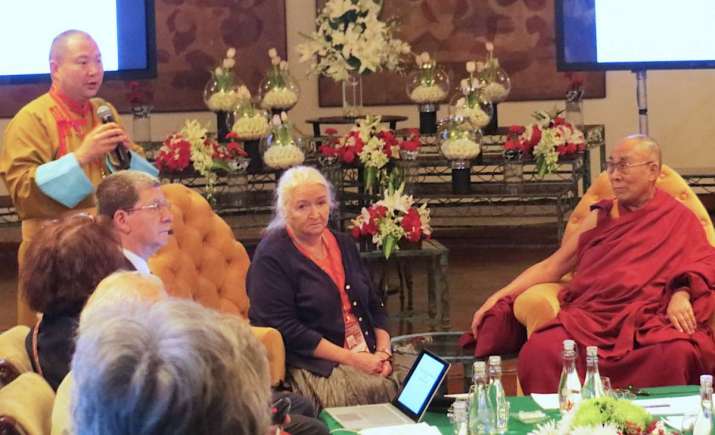 Telo Tulku Rinpoche, far left, Prof. Tatiana Chernigovskaya, seated, and His Holiness the Dalai Lama. Image courtesy of the author
Telo Tulku Rinpoche, far left, Prof. Tatiana Chernigovskaya, seated, and His Holiness the Dalai Lama. Image courtesy of the authorDuring the first day of the program, Venerable Geshe Lhakdor, director of the Library of Tibetan Works and Archives and head of the Science Education Project, gave a presentation on a cooperation with Emory University in the US for the education of monks and nuns. Another Tibetan monk, Venerable Geshe Dorje Damdul, director of Tibet House in New Delhi gave a talk on “Objective Understanding of the Mind and Mental Factors.”
On the second day of the event, His Holiness the Dalai Lama was welcomed at the meeting venue in the Taj Mahal Hotel, followed by presentations from Venerable Barry Kerzin, director of Altruism in Medicine and personal physician to His Holiness, and Venerable Tenzin Priyadarshi, director of the Dalai Lama Center for Ethics and Transformative Values at the Massachusetts Institute of Technology.
The third and fourth days featured an introductory talk by the Dalai Lama, and a dialogue on Russian research schools and traditions in the fields of biology, neurophysiology, psychology, linguistics, and philosophy. Seven Russian scholars from prestigious institutes in Moscow and St. Petersburg—Konstantin V. Anokhin, Yuri I. Alexandrov, David I. Dubrovsky, Tatiana V. Chernigovkaya, Maria V. Falikman, Dmitry B. Volkov, and Viktoria G. Lysenko—presented their research and participated in the dialogue.
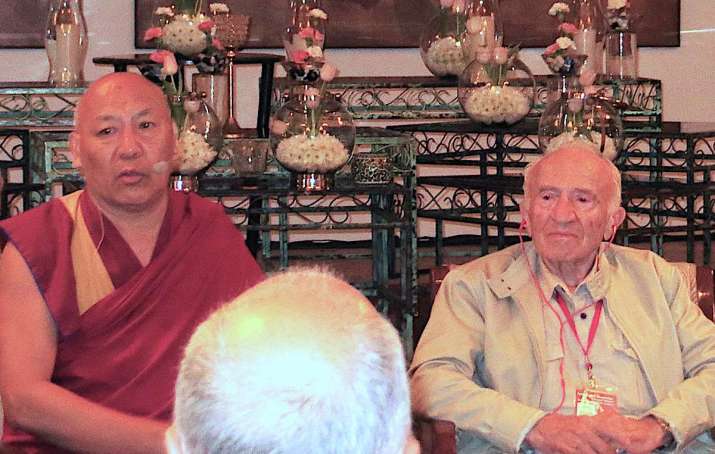 Venerable Geshe Lhakdor, left, and Dr. David I. Dubrovsky. Image courtesy of the author
Venerable Geshe Lhakdor, left, and Dr. David I. Dubrovsky. Image courtesy of the author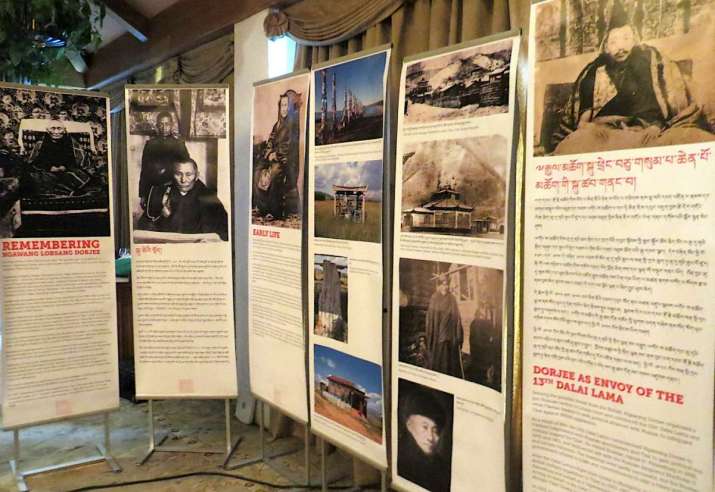 Exhibition dedicated to Agvan Dorjiev. Image courtesy of the author
Exhibition dedicated to Agvan Dorjiev. Image courtesy of the authorThere was also an impressive exhibition dedicated to the life of the Buryat monk Agvan Dorjiev (1854–1938), who studied at Drepung Gomang Monastery in Tibet, where he received a geshe lharampa degree.* Dorjiev’s close relationship with the 13th Dalai Lama was instrumental in establishing close ties between Tibet and Russia. The scientific forum in New Delhi was not only another important step strengthening this relationship, it also served as an invitation to transcend national borders, and to learn how to live together as citizens of our planet Earth.
The Dalai Lama expressed these sentiments with eloquence. “We have to learn from experience and enter into dialogue, remembering that others are our human brothers and sisters. We have to live together. The global economy and the effects of climate change are not limited by national borders. It’s the idea of ‘us’ and ‘them’ we have to restrain, because it so easily becomes the basis for violence. We have to educate people to understand that we are all part of humanity,” His Holiness observed. “Fear and suspicion won’t help us live together. We have to cultivate warm-heartedness. So the other purpose is to draw attention to the importance of peace of mind and the fact that we can’t build peace on the basis of anger.”
Echoing the spirit of His Holiness’ words, one of the presenters quoted the Russian Orthodox religious and political philosopher N.A. Berdyaev: “Truth cannot be national—it is always universal. But different nationalities may have a mission to disclose particular sides of a truth.”
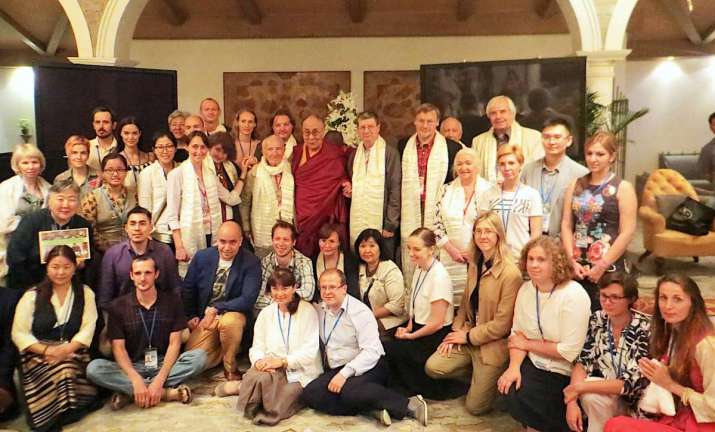 Dialogue participants and observers join His Holiness the Dalai Lama at the end of the conference. Image courtesy of the author
Dialogue participants and observers join His Holiness the Dalai Lama at the end of the conference. Image courtesy of the authorBetween the far-reaching conversations about the Buddhist concept of relative and absolute truth, His Holiness the Dalai Lama succinctly noted: “We all seek the truth and the truth must be the same.”
* Equivalent to doctorate in Buddhist studies.
See more
‘The Nature of Consciousness’ — Dialogue Between Russian and Buddhist Scholars (The Office of His Holiness the Dalai Lama)
Second Day of Dialogue between Russian and Buddhist Scholars (The Office of His Holiness the Dalai Lama)
Related news from Buddhistdoor Global
Dalai Lama Turns Spotlight on Fallibility of Buddhist Teachers in Public Address
His Holiness the Dalai Lama Marks 82nd Birthday in Leh
Dalai Lama Has Emotional Reunion 58 Years On with Former Rifleman Who Escorted Him During Escape to India
Dalai Lama Opens Three-day International Conference on “Relevance of Buddhism in the 21st Century”
Dalai Lama Awards Historic Geshema Degrees to 20 Nuns
Related features from Buddhistdoor Global
The Special Friendship of Vaclav Havel and the Dalai Lama, Born from the Emergence of Freedom in Post-Communist Czechoslovakia
Buddhistdoor View—Why Buddhism is Not All About the Search for Happiness














